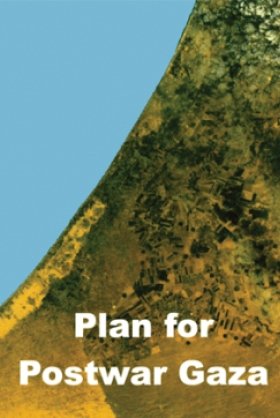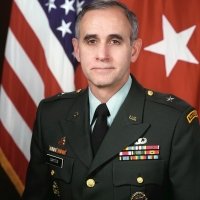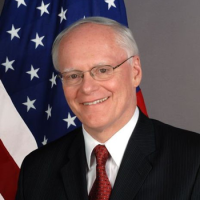Plan for Postwar Gaza



The views expressed in this report are those of the authors and do not express the official position of the Wilson Center.
Hamas’s terrorist attack on October 7 killed more than 1,200 Israelis and has led to Israel’s determination to end Hamas’s control of Gaza. History shows that what comes after any war ends is vitally important to secure a chance for a lasting, prosperous peace. To ensure an attack like October 7 cannot happen again, Israel should work with the United States and, eventually, other regional and non-regional states to implement a plan for postwar Gaza that calls for:
Strategic objectives. Any plan for postwar Gaza should: (1) prevent future Hamas- and Gaza-based attacks by conventional, terrorist, or asymmetric means; (2) end the cycle of wars between Israelis and Gazans and institute a program of de-radicalization; (3) end Hamas’s role in Gaza’s governance and deter Iranian-backed threats originating in Gaza; (4) gain international support for a post-Hamas security and political architecture in Gaza; (5) provide for a better life for the people of Gaza and the Israeli people who are their neighbors; and (6) create the conditions for a positive socioeconomic and political reality in Gaza.
This plan is not intended to settle the ultimate political outcome for Gaza, nor any of the larger issues concerning Israel and the Palestinians. Rather, it responds to the urgent and immediate need to secure and stabilize Gaza, including in the parts of Gaza that will soon be out of Hamas’s control. Waiting until larger political issues are settled risks anarchy that could lead to Hamas’s return to power in Gaza and to more suffering for Gaza’s people.
Israel does not want to be drawn into a long-term occupation of Gaza, nor does any other country. Even so, the IDF will need to retain the ability to carry out security operations to deal with Hamas remnants.
The Palestinian Authority (PA) is not ready to administer Gaza, nor does it have the requisite capacity to do so. The PA could not now address Israel’s legitimate security requirements in Gaza. Nor does it enjoy the necessary credibility with the Gazan people. There will be a role for consultations over payments to non-Hamas people and programs in Gaza, which should continue. But asking the PA to take on Gaza now would jeopardize the PA’s ability, and credibility, to do what it can to keep the West Bank secure. Revitalizing and reforming the PA is an important task that is outside the scope of this plan.
Approval from Israel and the United States. This plan overcomes the present strategic impasse between Israel and the United States. Israel’s position is that the current Palestinian Authority should not be given responsibility for postwar Gaza. The United States’ position is that the Palestinian Authority should be given control of postwar Gaza. This impasse threatens the long-term interest of all concerned—Israel, the Palestinian people, the United States, and the region. The plan has been shared with designated Israeli agencies and in the authors’ view is fully in compliance with Israel’s essential requirements. It needs the United States to express support for taking the lead to set up a Multi-National Authority (MNA) to administer Gaza, overseen by an International Contact Group (ICG). This needs to be done urgently in order for the MNA to be operational when the IDF is ready to transfer formal responsibility for administering and policing Gaza, while the IDF retains the authority to carry out security operations against Hamas and other terrorist remnants. Only the United States has the capacity and resources, civilian and military, to start this up fast enough and to get other key countries to participate—and, other than Israel, only the United States has the political will to assure that Israel’s security stays as one of the paramount objectives in postwar Gaza. The United States is now, as President Biden said on October 20, “the indispensable nation.”
Establishing an International Contact Group and a Multi-National Authority. The United States, working closely with Israel and Egypt, should establish a Multi-National Authority (MNA) to administer Gaza, which would report to an International Contact Group (ICG). These two entities would be created by an international charter drafted by the United States in consultation with Israel and Egypt and other key governments to give the MNA international legitimacy. ICG members should include, in addition to Israel and Egypt, the G-7, and some of the G-20 (e.g., Australia, South Korea and Saudi Arabia, and inviting the United Arab Emirates to join). The charter will include a consultation mechanism with the PA.
The legal authority for the MNA. Authority for assuming governance could be based on several legal alternatives (but the first two are likely to be problematic): (i) the PA ceding temporary responsibility; (ii) a well-drafted UN Security Council resolution under Chapter VII that gives a one-time-only authorization, not a renewable mandate nor any UN role; (iii) Israel taking responsibility for Gaza as an Occupying Power under international law and then transferring its authority to the MNA pursuant to a Memorandum of Understanding; or (iv) another mechanism that can meet the vital urgency requirement.
Setting up the MNA. The plan lays out the road map for setting up the MNA, led by a High Representative who would not be an American but would have the trust of the United States and Israel and the respect of Palestinians, the Middle East, Europe, and others. The United States would contribute key personnel and resources to the MNA and deploy teams to Israel and Egypt to get the MNA started quickly. A core team of 50-100 needs to be built in the first month before the MNA takes on operational responsibilities. The MNA would be funded by ICG governments on a pay-to-play principle, with the ability to receive funds from other governments. Initially, the MNA would have offices in Israel and Egypt, adding offices in Gaza when conditions allow. The MNA will need its own teams for finance, security, transportation, ministry liaisons, opinion polling, and public affairs. Israel will provide key early logistical support.
The Policing Force. The United States would organize a multinational Policing Force, similar to what was set up for Bosnia, Kosovo, Iraq, Afghanistan, and the counter-ISIS coalition. As described in more detail in section III B 4, the United States would contribute a small number of military personnel for command, logistics, intelligence, staff, and backoffice functions, with other countries’ forces carrying out “presence patrols” until a post- Hamas civil police and gendarmerie can be vetted and trained to take on policing responsibilities. Only if the United States commits personnel will other countries contribute personnel.
Key mission priorities. The MNA has a number of vital “day one” priorities: negotiating an end to hostilities, probably locally rather than all at once; preventing strategic looting; restoring sewer, water, electricity/fuel, and trash removal; restoring Gaza’s medical capabilities; coordinating with Israel and Egypt on the return of other services; mobilizing and coordinating activities of international, governmental, and non-governmental agencies and organizations; vetting (with Israeli and US participation) and rebuilding a post-Hamas Gazan police force and gendarmerie; and restarting the Gazan economy while ending Hamas’s culture of economic corruption and repression.
Other priorities are equally important to begin work on immediately even though they will take months or years to fully achieve their goals: begin the task of physical and social reconstruction to remove Hamas’s pervasive radicalizing influence over Gazan society in which all social and economic development was made secondary to Hamas’s radical goal of Israel’s destruction. The MNA will also need to develop a capacity to listen to and talk with Gaza’s residents; set up a de-radicalization/demobilization/re-integration (DDR) program (see Annex I); re-start Gaza’s schools in late 2024 without Hamas’s influence; establish effective border security between Gaza and Israel and Gaza and Egypt; address housing needs; begin to reform Gaza’s judicial system; survey damaged buildings and assess reconstruction priorities; and set up local councils to rebuild post-Hamas representative governance and support reconstruction from the bottom up.
The de-radicalization program must proceed hand in hand with reconstruction and the establishment of public order, and will need to account for changes to the educational system, Gaza-based media, ending the role of religious and civic organizations in radicalizing people to violence, and ending or modifying the distinctions between the eight historical refugee camps and other parts of Gaza.
Transition. Eventually, when conditions permit, both the PF and the MNA would transition responsibilities to local Palestinian entities once they are able to provide for governance, security, and law enforcement and not leave a security vacuum that terrorists or criminals could exploit. The MNA, after ending its governance roles and authority, would drastically reduce its personnel and become a coordinator for international stabilization, reconstruction, training, and technical assistance programs.






The Wilson Center’s Middle East Program serves as a crucial resource for the policymaking community and beyond, providing analyses and research that helps inform US foreign policymaking, stimulates public debate, and expands knowledge about issues in the wider Middle East and North Africa (MENA) region. Read more


